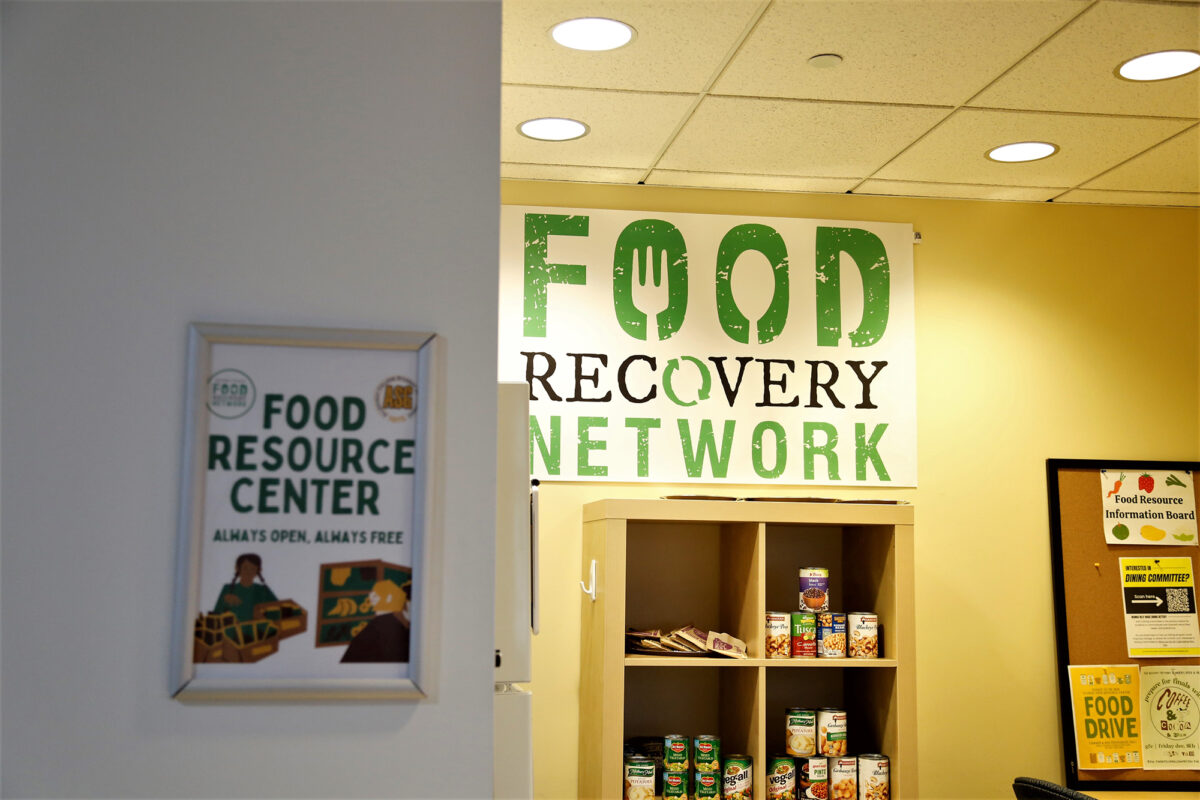
Allegheny College Awarded Designation by State of Pennsylvania as a PA Hunger-Free Campus
The Pennsylvania Department of Education has designated Allegheny College as a PA Hunger-Free Campus. Ian Binnington, Dean for the Student Experience, said of the achievement, “The designation isn’t just about fiddling with meal plans. It’s about structurally thinking about what are the needs of students, how we assess those needs, and how we meet those needs. We’ve done a lot of work with student organizations including the Food Recovery Network and Allegheny Student Government.”
Designation
To achieve the PA Hunger-Free Campus designation, institutions must certify and be able to demonstrate that they meet the following criteria:
- The institution has a method to directly connect students to food options through one or more of the following: an on-campus food pantry, a local community-based food pantry, or a food delivery program.
- The institution has strategies in place to increase awareness of the Supplemental Nutritional Assistance Program (SNAP) eligibility rules for students, focuses SNAP outreach on potentially eligible students, and helps students apply for SNAP and other benefits.
- The institution has a task force that meets on a regular basis to address basic needs initiatives, including hunger, and raises awareness among students using an equity, inclusion, and belonging lens. The task force includes students, faculty, financial aid staff, student support staff, and at least one member of institutional leadership (Cabinet, Vice President, etc.).
- The institution collects and reports data to the college/university community and/or state on student food insecurity, such as participation in the Hope Center’s #RealCollege Survey
- Possible initiatives that may warrant PA Hunger-Free+ designation include (but are not limited to):
- Offering a variety of meal plans, including an option that provides 10 or fewer meals weekly to avoid interfering with SNAP eligibility
- Creating or implementing meal-sharing programs.
- Educating student leaders on campus to create student-centered programs; or
- Facilitating innovative community partnerships
Institutionalizing solutions
Partners across the Allegheny College campus understand it’s also important to recognize that food insecurity doesn’t only mean access to quantity of food. It means access to the quality of food and its nutrition. Food insecurity surveys conducted by Binnington’s team identify the various ways in which a lack of access to nutritious food might impact one’s day-to-day functioning, for example diverting money from one thing to another. Or asking questions like “Have you felt weak? Have you lost weight? Have you missed class or other things?”
Student Government Association leader London Dejarnette said, “For students running the campus Food Resource Center, this accreditation means that we can expand programming options and increase the frequency of pantry restocks. It also indicates that Allegheny is taking intentional steps to support student populations particularly prone to food insecurity, which will continue to be necessary as our Commitment to Access Program (CAP) brings a larger influx of these students to campus. The designation signifies that Allegheny is invested in supporting holistic access for low-income students throughout their time here. I want to make it clear that this accreditation doesn’t state that Allegheny is now “hunger free,” rather, it demonstrates that we are an institution committed to food access for students.”
To interview Allegheny College leaders involved in this program, contact Jennifer Rignani, Marketing & Communications, at jrignani@allegheny.edu.